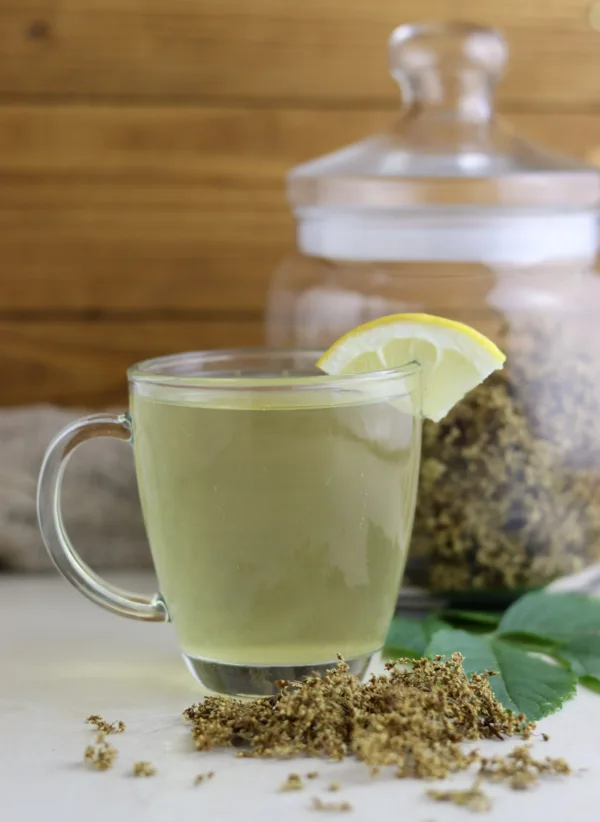EQUIPMENT
- herb gathering basket
- kitchen towel or parchent paper
- long strain (optinal)
- airtight jars with lids or paper bags
INGREDIENTS
- 2 tsp naturally dried elderflowers
- 1 cup boiled water
- 1 tsp honey (optional)
- 1 tsp fresh lemon juice (optinal)
INSTRUCTIONS
- Choose a dry, hot, sunny day when the elder trees are in full bloom.
- Forage healthy looking, fully opened elderflowers from the elder tree. Handle them gently and check for insects and aphids. Remove the insects and browned flowers from the umbels, avoid shaking the umbels. Gently place elderflowers to the basket.
- Remove the petals from the elderflowers before drying them or after they've been dried.
- At home once again check for insects. Place the flowers on a clean kitchen towel, parchment paper or hang them on a long strain. There must be enough air circulating between the flowers.
- Avoid direct sunshine and dry the elderflowers for the tea in a shaddy and airy place for about two weeks. Turn the flowers around every two days to avoid mold from building up.
- Store in airtight jars with lids or paper bags in a dark and dry place.
- Label the jars or bags with the name of the tea and date of storage.
- Use elderflower tea in one year time, before you can stock up on another batch of elderflowers.
- To prepare a cup of elderflower tea use two tsp of dried elderflowers. Pour over a cup of boiled water. Cover the cup and steep for about 10-15 minutes. Add fresh lemon juice and honey (optional).
- For cold elderflower tea drink in the summer, add honey and lemon juice and let the elderflower tea cool down to room temperature. Before serving add a few ice blocks.
Video
NOTES
- Avoid foraging for elderflowers near roads, heavy traffic, intensive farming areas and industrial areas.
- It's best to harvest when the sun is the brightest, around noon; that's when the aroma and the pollen in the flowers are the richest.
- Place a kitchen towel or a piece of paper on the bottom of the basket to prevent pollen from shaking out of the basket.
- Avoid collecting elderflowers after heavy rainfalls.
- Aphids adore elderflowers, but you usually won't see them before you pluck the umbels. Remove them before drying the elderflowers.
- Do not gather all the elderflowers from the same tree; the bees will be happy if you don't, and you'll be able to come back to the tree later to harvest elderberries.
- The ideal temperature for drying herbs is between 86 and 100 F (30 – 40 degrees Celsius). Drying at higher temperatures is not suitable as the essential oils from the herbs evaporate easier. Avoid drying elderflowers in direct sun.
- Dry elderflowers will retain their color and aroma easier when stored in airtight glass jars.
- Excessive amounts of elderflower tea or its prolonged usage could prove harmful.
- If you are taking other medicines for blood sugar levels, please consult with your doctor about daily consuming elderflower tea. Limit drinking elderflower tea during pregnancy.
- Avoid drinking elderflower tea two weeks prior to surgery.
- One of the sweetest-tasting tea blends that include elderflowers is a combination of elderflowers, lime blossom, rose tea and honey.
Nutrition
Calories: 3kcal
